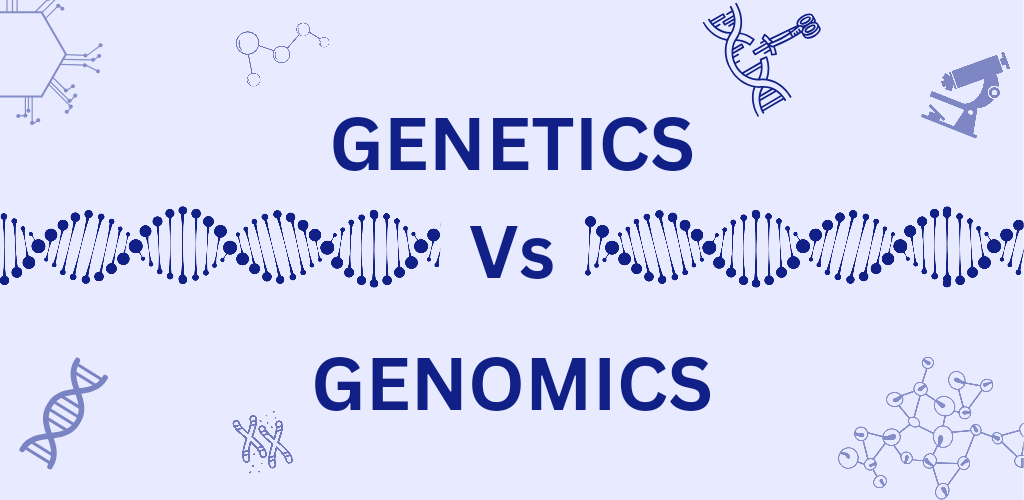Are You Built for Endurance, Strength, or Both? Discover Your Genetic Fitness Type
Understanding one’s genetic fitness type can significantly influence training and performance outcomes. Genetic factors are crucial in determining whether an individual is predisposed to excel in endurance or strength activities. Recent research highlights the importance of specific genetic markers, such as the ACTN3 and ACE genes, which are linked to muscle performance and endurance capabilities. This blog explores the distinctions between endurance and strength, the role of genetics in fitness, and how individuals can leverage this knowledge for optimal training.[1]
Genetic Fitness Types: Endurance vs. Strength
Endurance Genetics
-
Key Genes: The ACE gene and ACTN3 gene are pivotal in endurance performance. Variants of these genes can influence aerobic capacity and muscle fiber composition.[1]
-
Research Findings: Studies show that individuals with the ACTN3 RR or RX genotypes tend to have higher peak power output, which can be beneficial in both strength and certain aspects of endurance requiring bursts of power, such as hill climbs in cycling [2].
-
Heritability: .Research suggests a substantial genetic contribution (40-70%) to individual differences in peak oxygen uptake, a key determinant of endurance capacity [General citation on VO2 max heritability] [1].
Strength Genetics
-
Key Genes: Genetic polymorphisms related to muscle structure, such as those in the ACVR1B gene, have been associated with muscle size and strength[3].
-
Performance Indicators: Strength-oriented athletes often possess specific gene combinations that enhance their anaerobic power and muscle mass, with studies indicating that certain alleles are more prevalent in power athletes[3].
-
Genetic Influence: Research indicates that genetic factors can explain up to 20.4% of the variation in measures of muscle fitness, such as strength and power, highlighting the significant role of genetics in strength performance [3].
Fitness DNA Analysis: Understanding Your Type
Testing for Genetic Fitness
-
Endurance vs. Strength DNA Tests: Genetic testing can provide insights into an individual’s predisposition towards endurance or strength. Tests analyze specific gene variants to predict performance potential.
-
Practical Applications: Athletes can use this information to tailor their training regimens. For instance, endurance-oriented individuals may focus on long-distance training, while strength-oriented individuals might prioritize weight training[4].
Power vs. Endurance: What the ACTN3 and ACE Genes Say
Your fitness potential isn’t just shaped by training — it’s also in your genes. Two important genes, ACTN3 and ACE, play a major role in deciding whether your body is better suited for strength, endurance, or a mix of both. In a study on professional cyclists, individuals with at least one functional copy of the ACTN3 gene (RR or RX genotypes) generally showed better performance in tests requiring power, and also demonstrated some advantages in endurance tests, potentially due to the demands of competitive cycling, which involves both aspects. In contrast, the XX genotype, lacking a functional ACTN3 protein, was associated with lower performance in these areas. Interestingly, cyclists with the combination of ACTN3 RR/RX genotypes and the ACE DD genotype showed enhanced performance in intense, anaerobic efforts (like sprinting or climbing) compared to other genotype combinations [2]
The Broader Perspective: Nature vs. Nurture
While genetics play a significant role in determining fitness types, environmental factors and training also contribute to athletic performance. The interplay between genetic predispositions and lifestyle choices, such as diet and training intensity, can shape an athlete’s capabilities. Moreover, the ethical implications of genetic testing in sports raise questions about fairness and accessibility. As research continues to evolve, understanding the balance between genetic potential and personal effort remains crucial for athletes and fitness enthusiasts alike.
Conclusion
Genetic fitness planning: Knowledge of genetic fitness predispositions can modify training approaches. It provides insights into an individual’s potential for excelling in either endurance or strength exercises. This enables the development of personalized workout plans aligned with an individual’s genetic predispositions. Understanding your genetic strengths can inform training strategies to optimize performance, potentially. Ultimately, it involves identifying the most effective training modalities, whether focused on power activities like sprinting and lifting, or a combination of both.
Genetic insights in athletics offer opportunities for personalized training optimization. Even without genetic testing, individuals can gain insights into their endurance-strength balance by carefully monitoring their physiological responses to different types of training. Making small changes to your workout can lead to big improvements. Nutrition also plays a crucial role, and while genetics can influence individual responses to different nutrients (an area of study known as nutrigenomics), dietary recommendations are complex and multifaceted.
Understanding one’s genetic profile can guide training decisions, allowing individuals to work with their predispositions to achieve their fitness goals. Use this knowledge to set and reach your fitness goals. Celebrate every step forward, not just the perfect ones. Understanding one’s genetic profile can be a valuable initial step in developing a more informed approach to reaching one’s full athletic potential. This knowledge empowers individuals to make data-driven decisions about their training and pursue strategies aligned with their genetic predispositions. The integration of scientific understanding of one’s genetic profile with dedicated training efforts can lead to significant improvements in athletic performance.
Overall, discovering one’s genetic fitness type can provide valuable insights into training and performance. By understanding the genetic factors that influence endurance and strength, individuals can optimize their training strategies and achieve their fitness goals more effectively.
Learn more about our Best DNA Test for Athletes here:👉https://dromicslabs.com/product/genetic-testing-for-athletes/
References
-
Chae, J. H., Eom, S., Lee, S., Jung, J., & Kim, C. (2024). Association between Complex ACTN3 and ACE Gene Polymorphisms and Elite Endurance Sports in Koreans: A Case–Control Study. Genes, 15(9), 1110. https://doi.org/10.3390/genes15091110
- Gómez-Gallego, F., Santiago, C., González-Freire, M., Muniesa, C., Del Valle, M. F., Pérez, M., Foster, C., & Lucia, A. (2008). Endurance performance: genes or gene combinations? International Journal of Sports Medicine, 30(01), 66–72. https://doi.org/10.1055/s-2008-1038677
- Venckunas, T., & Degens, H. (2022). Genetic polymorphisms of muscular fitness in young healthy men. PLoS ONE, 17(9), e0275179. https://doi.org/10.1371/journal.pone.0275179
- Cerit, M. (2020). GENETICS AND ATHLETIC PERFORMANCE. RESEARCH IN PHYSICAL EDUCATION, SPORT AND HEALTH, 9(2), 65–76. https://doi.org/10.46733/pesh20920065c




